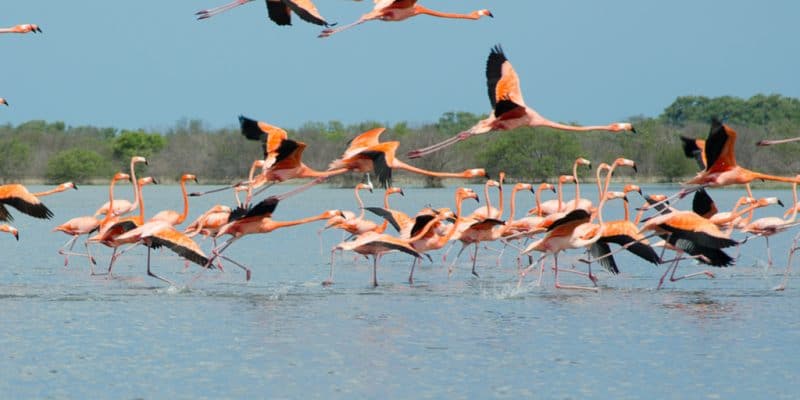
What can we learn from conflict resolution that can help us build strong virtual communities, networks and teams?
I believe that some of the approaches applied to conflict resolution apply equally well to the development of on-line and virtual communities, teams and networks – particularly where member participation is voluntary. One of the most useful is “The Flight of the Flamingoes” scenario.
The end of apartheid in South Africa
In 1992 four scenarios were developed collaboratively by 22 prominent South Africans [1] from across the ideological spectrum to capture a ten-year vision about where South Africa might end up:
- Ostrich (continuation of apartheid)
- Lame Duck (constitutionally weakened government leading to slow and indecisive transition)
- Icarus (rapid introduction of populist but unsustainable economic policies followed by economic crash)
- Flight of the Flamingos (sustainable government policies leading to inclusive growth and democracy)
The last scenario was, of course, in the end largely achieved where like the graceful birds taking off from a lake “every one in society rises slowly and steadily together”.
However the other scenarios were all entirely possible outcomes which needed to be identified and somehow mitigated against.
Virtual community development scenarios
These four scenarios are also relevant to those of us trying to mobilise, nurture or incubate virtual communities which are able to sustain themselves beyond an initial enthusiasm or novelty stage.
The failures and scenarios often follow a similar sequence in our virtual community-building initiatives:
Mistake#1: We don’t take time to involve people properly……
Outcome#1: Ostrich – head in the sand – and everybody ignores it
Mistake#2: We take too long and don’t create enough urgency or quick wins.
Outcome#2: Lame Duck – limps along – only the leaders use it!
Mistake#3: We are too ambitious and over-sell it…..
Outcome#3: Icarus – great start but soon crashes and burns
If we are humble enough to learn from these majestic birds and incorporate natures teaming principles in our approach to virtual collaboration then we have an excellent chance of a “Flight of the flamingos” with everybody in the virtual community rising up slowly and steadily together
References
1. Chrislip, D., 2003. The Collaborative Leadership Fieldbook – A guide for citizens and civic leaders, Jossey Bass pp. 200-202
Ken is an expert practitioner, author and speaker on Collaboration, High Performing Teams, Change Management, Business Strategy and Leadership Development.

